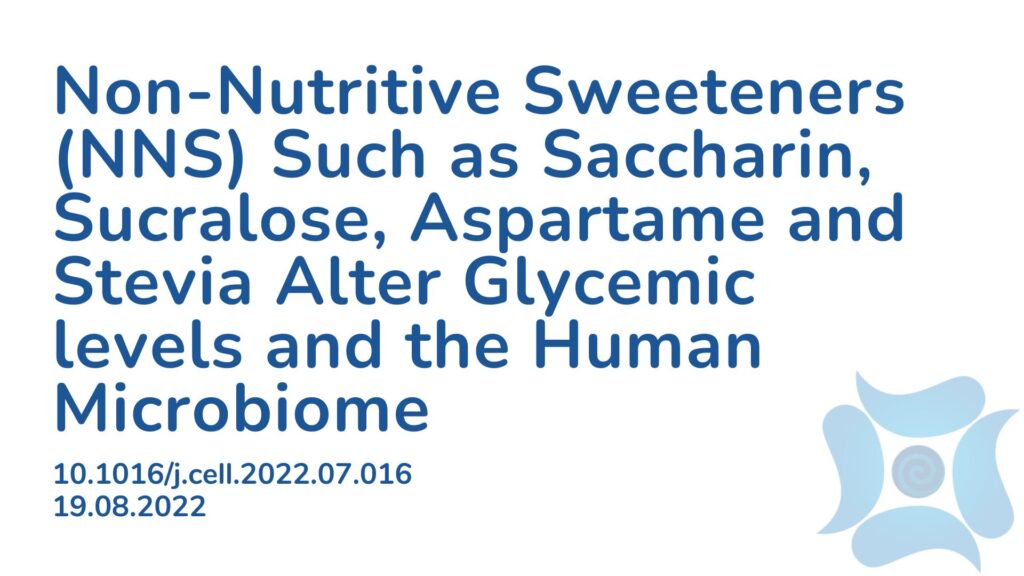Summary: This paper is a randomised controlled trial (RCT) on the effects of non-nutritive sweeteners (NNS) such as saccharin, sucralose, aspartame and stevia in humans. Due to sugar consumption being strongly linked to weight gain, NNS are often recommended in order to control glucose levels and energy intake. NNS do not contain calories and are therefore assumed to be beneficial for weight loss and have no impact on the glycemic response. This RCT shows that sucralose and saccharin supplementation does infact impair the glycemic response in healthy adults and that NNS can also alter the human microbiome. All four of the tested NNS showed alteration of the intestinal and oral microbiome. Whilst more research is needed in this area, it raises the question of whether recommending NNS instead of sugar is a safer option at all for weight management or metabolic disorders.
Abstract:
Non-nutritive sweeteners (NNS) are commonly integrated into human diet and presumed to be inert; however, animal studies suggest that they may impact the microbiome and downstream glycemic responses. We causally assessed NNS impacts in humans and their microbiomes in a randomized-controlled trial encompassing 120 healthy adults, administered saccharin, sucralose, aspartame, and stevia sachets for 2 weeks in doses lower than the acceptable daily intake, compared with controls receiving sachet-contained vehicle glucose or no supplement. As groups, each administered NNS distinctly altered stool and oral microbiome and plasma metabolome, whereas saccharin and sucralose significantly impaired glycemic responses. Importantly, gnotobiotic mice conventionalized with microbiomes from multiple top and bottom responders of each of the four NNS-supplemented groups featured glycemic responses largely reflecting those noted in respective human donors, which were preempted by distinct microbial signals, as exemplified by sucralose. Collectively, human NNS consumption may induce person-specific, microbiome-dependent glycemic alterations, necessitating future assessment of clinical implications.
Article Publication Date: 19.08.2022
DOI: 10.1016/j.cell.2022.07.016



